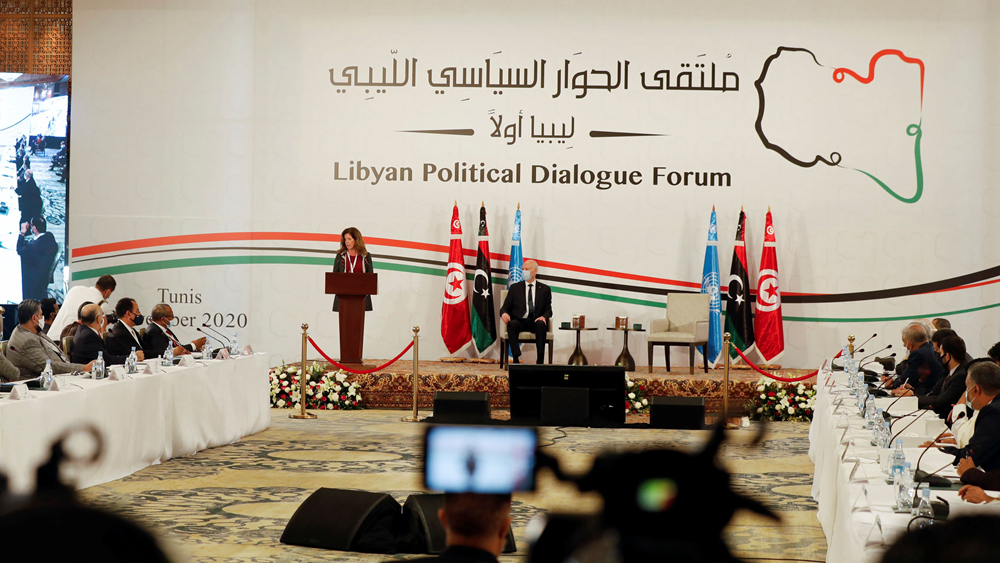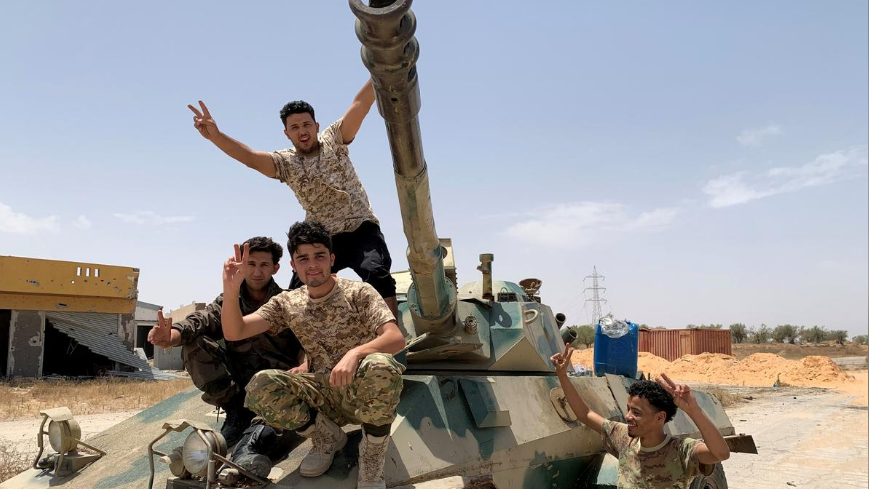
Deputy Special Representative of the UN Secretary-General for Political Affairs in Libya Stephanie Williams speaks during the Libyan Political Dialogue Forum in Tunis, November 9, 2020. /Reuters
Deputy Special Representative of the UN Secretary-General for Political Affairs in Libya Stephanie Williams speaks during the Libyan Political Dialogue Forum in Tunis, November 9, 2020. /Reuters
Talks on Libya's future adjourned on Sunday without naming a new government to oversee a transition to possible elections next December, and acting UN envoy Stephanie Williams said there was a lot of work still to do.
"We have agreed to reconvene in about a week in a virtual meeting (to) agree on the selection mechanism for the coming authority," said the UN's interim Libya envoy Stephanie Williams.
The latest phase in renewed efforts for peace in the oil-rich North African country, a week of political talks in neighboring Tunisia, brought together 75 delegates selected by the UN to represent a broad range of constituencies.
They were charged with laying out a roadmap towards elections on December 24, setting the mandate of an interim executive and naming its members. However, the talks ended without any agreement on a unified executive authority that Williams had said was required to reach elections.
"Ten years of conflict cannot be resolved in one week," she said.

Fighters loyal to Libya's internationally recognized government regain control over the city, in Tripoli, June 4, 2020. /Reuters
Fighters loyal to Libya's internationally recognized government regain control over the city, in Tripoli, June 4, 2020. /Reuters
The talks come as part of a wider peacemaking process along with a military ceasefire agreed between the two main sides in the war: the internationally recognized Government of National Accord (GNA) and Khalifa Haftar's Libyan National Army (LNA). Military talks led to a formal ceasefire deal in October, and recent developments on parallel economic and political tracks have raised hopes for progress.
The UN's former envoy to Libya and the architect of the current UN process, Ghassan Salame, said on Friday he had higher hopes than ever for peace, citing "an accumulation of positive factors."
However, many Libyans are skeptical about a process that has followed nearly a decade of chaos and bloodshed and repeated previous efforts to resolve the country's divisions.
Some observers also noted major obstacles to a lasting peace, including political figures benefitting from the status quo as well as the presence in Libya of different foreign forces.
(With input from agencies)

